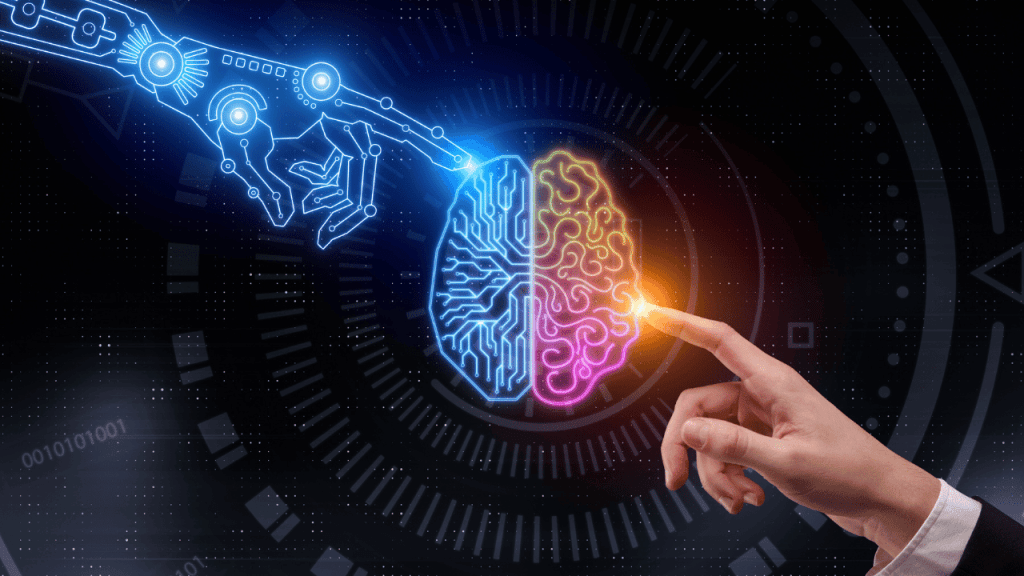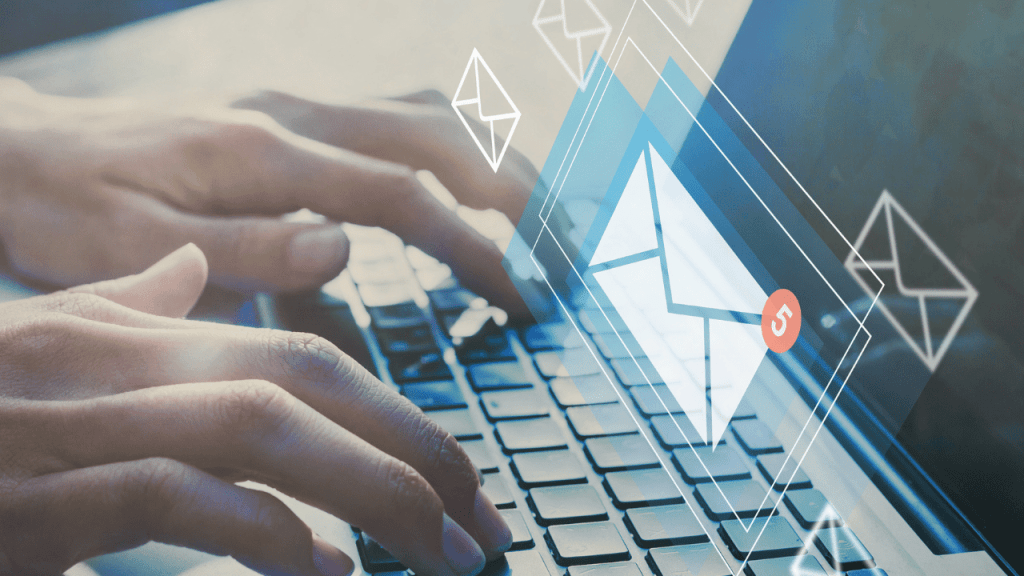Ethical Dilemmas in Modern Technology (Fluent Level)

As technology evolves at an unprecedented pace, society is faced with ethical dilemmas that challenge our values and principles. From artificial intelligence to data privacy, the ethical implications of technological advancements have never been more pressing. This article explores some of the most debated ethical issues in modern technology. 1. The Privacy Paradox In the digital age, personal data has become one of the most valuable commodities. Social media platforms, search engines, and online services collect vast amounts of user data to enhance user experience and target advertisements. However, this raises the question: How much privacy are we willing to sacrifice for convenience? 📌 Example: “Many users are unaware of the extent to which their personal data is being tracked and monetized by tech companies.” 2. AI Bias and Algorithmic Discrimination Machine learning models are trained on vast datasets, but these datasets often contain human biases. As a result, AI can unintentionally reinforce discrimination in areas like hiring, law enforcement, and lending. If left unchecked, biased algorithms can exacerbate social inequalities rather than eliminate them. 📌 Example: “An AI-powered hiring system may unintentionally favor male candidates if trained on biased historical data.” 3. The Ethics of Autonomous Weapons Military technology has advanced to the point where AI-powered autonomous weapons can make life-or-death decisions without human intervention. This raises concerns about accountability, as well as the moral implications of allowing machines to determine human fate in warfare. 📌 Example: “Should AI-controlled drones have the authority to engage targets without human oversight?” 4. The Moral Responsibility of Tech Companies Big Tech companies wield enormous influence over society, shaping public opinion, controlling the flow of information, and even influencing elections. However, many argue that these companies prioritize profit over ethical considerations. Should they be held accountable for the societal consequences of their technologies? 📌 Example: “Social media companies have been criticized for spreading misinformation while profiting from user engagement.” 5. The Future: Regulation or Self-Governance? Governments and regulatory bodies are struggling to keep up with the rapid development of technology. While some advocate for stricter laws to regulate tech companies, others believe that self-governance and ethical AI development are more effective solutions. Striking the right balance is one of the biggest ethical challenges of our time. 📌 Example: “Finding the balance between regulation and innovation is a key challenge for policymakers in the tech industry.” Vocabulary Section 🔹 Unprecedented – Never done or known before.🔹 Monetized – Turned into a source of profit.🔹 Exacerbate – To make a problem worse.🔹 Autonomous – Having the ability to operate independently.🔹 Oversight – Supervision or monitoring to ensure proper conduct. This article was designed for fluent readers to engage with complex topics and expand their critical thinking skills. What’s your opinion on these ethical dilemmas? Do you think technology companies should be more regulated? 🚀
The Future of Artificial Intelligence in Everyday Life (Advanced Level)

Artificial Intelligence (AI) is no longer a futuristic concept—it is already integrated into our daily lives. From voice assistants to recommendation algorithms, AI is shaping the way we interact with technology. But what does the future hold for AI? Let’s explore how AI is expected to evolve and impact different areas of society. 1. AI in Communication and Personal Assistants Virtual assistants like Siri, Alexa, and Google Assistant have already changed how we perform simple tasks. They help us set reminders, send messages, and control smart home devices. In the future, AI is expected to become even more context-aware, understanding not just what we say, but also the emotions behind our words. 📌 Example: “Future AI assistants may detect a user’s mood and adjust their responses accordingly.” 2. AI and the Workforce Automation has already replaced some jobs, particularly in manufacturing and logistics. However, AI is also creating new opportunities in fields like data science, cybersecurity, and AI ethics. While some fear widespread job displacement, many experts believe AI will complement human workers rather than replace them entirely. 📌 Example: “AI is expected to revolutionize industries by automating repetitive tasks and enhancing human decision-making.” 3. AI in Healthcare One of the most promising applications of AI is in medicine. AI-driven systems can detect diseases earlier than human doctors, personalize treatments, and even assist in complex surgeries. Machine learning models are being used to analyze medical images, predict outbreaks, and develop new drugs faster. 📌 Example: “AI has the potential to improve healthcare by providing faster and more accurate diagnoses.” 4. Ethical Concerns and AI Regulation With AI’s rapid development, ethical concerns are growing. Issues like bias in algorithms, privacy violations, and job displacement must be addressed. Governments and organizations are working on AI regulations to ensure transparency and accountability in AI decision-making. 📌 Example: “AI regulation is essential to prevent biased decision-making and protect user privacy.” 5. The Future: Superintelligence or Collaboration? Some experts predict that AI will reach a level of superintelligence, surpassing human cognitive abilities. Others believe AI will always remain a tool to assist humans rather than replace them. The key to a balanced future is ensuring that AI is developed ethically and aligned with human values. 📌 Example: “The future of AI depends on how society manages its development and ethical implications.” Vocabulary Section 🔹 Context-aware – Able to understand the situation or environment it is in.🔹 Job displacement – The replacement of human workers by machines or automation.🔹 Cybersecurity – The practice of protecting systems, networks, and data from cyber threats.🔹 Transparency – The quality of being open and clear about how decisions are made.🔹 Superintelligence – A level of AI that surpasses human intelligence in all aspects. This article was written at an advanced level to challenge your reading and comprehension skills. Would you like to try a more complex text at a fluent level next? 🚀
The History of Coffee and Its Global Impact (Intermediate Level)

Coffee is one of the most popular beverages in the world. Millions of people start their day with a cup of coffee, enjoying its rich taste and energy-boosting effects. But do you know where coffee comes from and how it became so important globally? Let’s explore its history and impact. 1. The Origins of Coffee The history of coffee dates back to the 9th century in Ethiopia. According to legend, a goat herder named Kaldi noticed that his goats became energetic after eating berries from a certain tree. Curious, he tried the berries himself and felt more alert. Monks in nearby monasteries began using these berries to stay awake during long prayers, and the word about this magical drink spread. 📌 Example: “According to legend, coffee was discovered by a goat herder named Kaldi.” 2. Coffee’s Journey Around the World Coffee traveled from Ethiopia to the Arabian Peninsula, where it became a major part of culture. By the 15th century, coffeehouses, known as qahveh khaneh, became popular in the Middle East. These places were not just for drinking coffee but also for discussing politics, literature, and business. By the 17th century, coffee had reached Europe and quickly became a favorite beverage. Some people were skeptical at first, calling it the “bitter invention of Satan,” but Pope Clement VIII approved it, and its popularity exploded. Soon, coffeehouses appeared in major cities like London, Paris, and Vienna. 📌 Example: “By the 17th century, coffee had spread across Europe and became widely accepted.” 3. The Modern Coffee Industry Today, coffee is one of the most traded commodities in the world. Countries like Brazil, Colombia, and Vietnam are major producers, supplying coffee to millions of cafes and homes worldwide. The rise of global coffee chains like Starbucks and the trend of specialty coffee have changed the way people consume it. 📌 Example: “Brazil is the largest coffee producer in the world, exporting millions of tons each year.” 4. The Social and Economic Impact of Coffee Coffee is more than just a drink—it’s a cultural and economic powerhouse. It provides jobs for millions of farmers and workers, especially in developing countries. Additionally, coffee culture has shaped how people socialize, with coffee shops serving as gathering places for friends, students, and professionals. 📌 Example: “Coffee is an essential part of many cultures, bringing people together in social spaces.” Vocabulary Section 🔹 Beverage – A drink.🔹 Goat herder – A person who takes care of goats.🔹 Alert – Awake and aware of what is happening.🔹 Skeptical – Doubting something; not easily convinced.🔹 Commodity – A raw material or product that can be traded. This article was written at an intermediate level to help you practice reading and learn new vocabulary. Would you like to try a more advanced article next? Let me know! 🚀
Daily Routines and Common Activities (Basic Level)

Our daily routines shape our lives. From waking up in the morning to going to bed at night, we follow a series of activities that help us stay organized and productive. Let’s look at a typical daily routine. 1. Morning Routine Most people wake up between 6:00 AM and 8:00 AM. The first thing many do is stretch (to extend the body to feel more relaxed) or check their phone. After that, they take a shower, brush their teeth, and get dressed. Some people also eat breakfast, which is an important meal to start the day. 📌 Example: “I wake up at 7:00 AM and have breakfast before going to work.” 2. Work or Study Time After breakfast, people go to work or school. Some take public transportation, like a bus or a train, while others drive their car or ride a bicycle. At work or school, they attend meetings or classes, complete assignments, and talk to colleagues or classmates. 📌 Example: “I take the bus to school and start my classes at 8:30 AM.” 3. Afternoon and Evening Activities After work or school, many people eat lunch and then continue working. In the evening, they go to the gym, watch TV, or read a book. Some people also cook dinner and spend time with their family. 📌 Example: “After work, I go to the gym and then have dinner with my family.” 4. Night Routine Before going to bed, people usually take a shower, watch TV, or read. Many also set an alarm (to prepare to wake up the next day). Finally, they go to sleep around 10:00 PM or 11:00 PM. 📌 Example: “I set my alarm for 6:30 AM before going to sleep.” Vocabulary Section 🔹 Stretch – To extend your arms, legs, or body to feel more comfortable.🔹 Brush (teeth, hair) – To clean with a brush.🔹 Assignments – Tasks given by a teacher or employer.🔹 Colleagues – People you work with.🔹 Set an alarm – To prepare an alarm to wake up at a specific time. This was a simple text to practice reading and vocabulary. Do you want to try a more difficult text next? Let me know! 🚀
Vocabulário essencial para e-mails e comunicação profissional

Escrever e-mails em inglês pode parecer desafiador no início, mas com as expressões certas, você consegue se comunicar de forma clara, educada e profissional. Neste artigo, vamos explorar frases essenciais para diferentes partes de um e-mail corporativo. 1. Saudação inicial 🔹 “Dear [Nome],” → Caro(a) [Nome], (formal)🔹 “Hello [Nome],” → Olá, [Nome], (semiformal)🔹 “Hi [Nome],” → Oi, [Nome], (informal) 📌 Example: “Dear Mr. Smith,” → “Caro Sr. Smith,” Se você não sabe o nome do destinatário, pode usar:🔹 “To whom it may concern,” → A quem possa interessar, 🔹 “Dear Sir or Madam,” → Prezado(a) Senhor(a), 2. Introdução do e-mail 🔹 “I hope this email finds you well.” → Espero que este e-mail o(a) encontre bem. 🔹 “I am writing to you regarding [assunto].” → Estou escrevendo em relação a [assunto]. 🔹 “I am reaching out to [motivo].” → Estou entrando em contato para [motivo]. 📌 Example: “I am writing to you regarding our meeting next week.” (Estou escrevendo em relação à nossa reunião da próxima semana.) 3. Fazendo pedidos e solicitações 🔹 “Could you please [ação]?” → Você poderia, por favor, [ação]? 🔹 “Would it be possible to [ação]?” → Seria possível [ação]? 🔹 “I would appreciate it if you could [ação].” → Eu agradeceria se você pudesse [ação]. 📌 Example: “Could you please send me the report by Friday?” (Você poderia, por favor, me enviar o relatório até sexta-feira?) 4. Agradecendo e respondendo a e-mails 🔹 “Thank you for your email.” → Obrigado(a) pelo seu e-mail. 🔹 “I appreciate your help.” → Agradeço sua ajuda. 🔹 “Looking forward to your response.” → Aguardando sua resposta. 📌 Example: “Thank you for your support. I really appreciate it.” (Obrigado pelo seu apoio. Eu realmente aprecio isso.) 5. Encerrando um e-mail profissionalmente 🔹 “Please let me know if you need any further information.” → Por favor, me avise se precisar de mais informações. 🔹 “I look forward to hearing from you soon.” → Fico no aguardo de sua resposta em breve. 🔹 “Best regards,” → Atenciosamente, 🔹 “Sincerely,” → Cordialmente, 📌 Example: “I look forward to your reply. Best regards, Anna.” (Fico no aguardo de sua resposta. Atenciosamente, Anna.) Escrever e-mails formais ou informais pode ser mais fácil quando você já tem frases prontas para cada situação. Qual dessas expressões você achou mais útil? Quer exemplos para algum outro tipo de e-mail? 😃
Como se apresentar e se comunicar em reuniões de negócios

Participar de reuniões em inglês pode ser desafiador, mas com as expressões certas, você consegue se comunicar de forma clara e profissional. Neste artigo, vamos explorar frases úteis para apresentações, discussões e encerramento de reuniões. 1. Como se apresentar de forma profissional 🔹 “Good morning, everyone. My name is [seu nome] and I’m [cargo] at [empresa].” (Bom dia a todos. Meu nome é [seu nome] e sou [cargo] na [empresa].) 📌 Example: “Good morning, everyone. My name is Julia and I’m a project manager at Tech Solutions.” (Bom dia a todos. Meu nome é Julia e sou gerente de projetos na Tech Solutions.) 🔹 “It’s a pleasure to be here today and I look forward to discussing [assunto].” (É um prazer estar aqui hoje e estou ansioso para discutir [assunto].) 2. Como iniciar uma reunião 🔹 “Shall we get started?” → Vamos começar? 🔹 “The purpose of today’s meeting is to discuss [tema].” (O objetivo da reunião de hoje é discutir [tema].) 📌 Example: “The purpose of today’s meeting is to review our marketing strategy for the next quarter.” (O objetivo da reunião de hoje é revisar nossa estratégia de marketing para o próximo trimestre.) 🔹 “Let’s go over today’s agenda.” (Vamos revisar a pauta de hoje.) 3. Como expressar opiniões e sugerir ideias 🔹 “I believe that…” → Acredito que… 📌 Example: “I believe that increasing our online presence will boost sales.” (Acredito que aumentar nossa presença online impulsionará as vendas.) 🔹 “In my opinion, we should…” → Na minha opinião, deveríamos… 📌 Example: “In my opinion, we should focus on customer feedback.” (Na minha opinião, deveríamos focar no feedback dos clientes.) 🔹 “What if we tried…?” → E se tentássemos…? 📌 Example: “What if we tried a new approach to social media marketing?” (E se tentássemos uma nova abordagem para o marketing nas redes sociais?) 4. Como concordar ou discordar de forma educada 🔹 “I see your point, but I think…” (Entendo seu ponto de vista, mas acho que…) 📌 Example: “I see your point, but I think we need more data before making a decision.” (Entendo seu ponto, mas acho que precisamos de mais dados antes de tomar uma decisão.) 🔹 “That’s a great idea!” → Essa é uma ótima ideia! 🔹 “I partially agree with you, but…” → Eu concordo parcialmente com você, mas… 5. Como encerrar uma reunião profissionalmente 🔹 “To summarize, we have decided to…” (Para resumir, decidimos…) 🔹 “Before we finish, does anyone have any final thoughts?” (Antes de terminarmos, alguém tem considerações finais?) 🔹 “Thank you all for your time and contributions. Let’s follow up on [próximos passos].” (Obrigado a todos pelo tempo e contribuições. Vamos acompanhar [próximos passos].) Saber como se expressar corretamente em reuniões pode fazer toda a diferença no ambiente corporativo! Qual dessas frases você acha mais útil? Quer mais exemplos para alguma situação específica? 😃
Gírias e expressões informais que todo estudante de inglês deve conhecer

Se você quer soar mais natural ao falar inglês, é essencial conhecer algumas gírias e expressões informais. Elas são usadas no dia a dia por falantes nativos e podem deixar suas conversas mais descontraídas e autênticas. Vamos explorar algumas das mais comuns! 1. Gírias para conversar com amigos 🔹 “What’s up?” → E aí? / O que está rolando? 📌 Example: 🔹 “No big deal” → Sem problemas / Nada demais 📌 Example: 🔹 “Chill out” → Ficar de boa / Relaxa 📌 Example: 2. Expressões informais para elogiar ou reagir a algo legal 🔹 “Awesome” / “Cool” → Incrível / Massa 📌 Example: 🔹 “That’s lit!” → Isso é muito irado! 📌 Example: 🔹 “Killing it” → Mandando muito bem! 📌 Example: 3. Gírias para quando algo dá errado 🔹 “Bummer” → Que chato! 📌 Example: 🔹 “Screw up” → Dar mancada / Errar feio 📌 Example: 🔹 “Epic fail” → Fracasso total! 📌 Example: 4. Expressões para concordar ou demonstrar interesse 🔹 “I feel you” → Te entendo / Sei como é 📌 Example: 🔹 “Tell me about it!” → Nem me fale! 📌 Example: 🔹 “You bet!” → Pode apostar! 📌 Example: As gírias e expressões informais tornam sua comunicação mais autêntica e próxima da linguagem real dos nativos. Qual dessas expressões você mais gostou? Quer aprender mais alguma específica? 😃